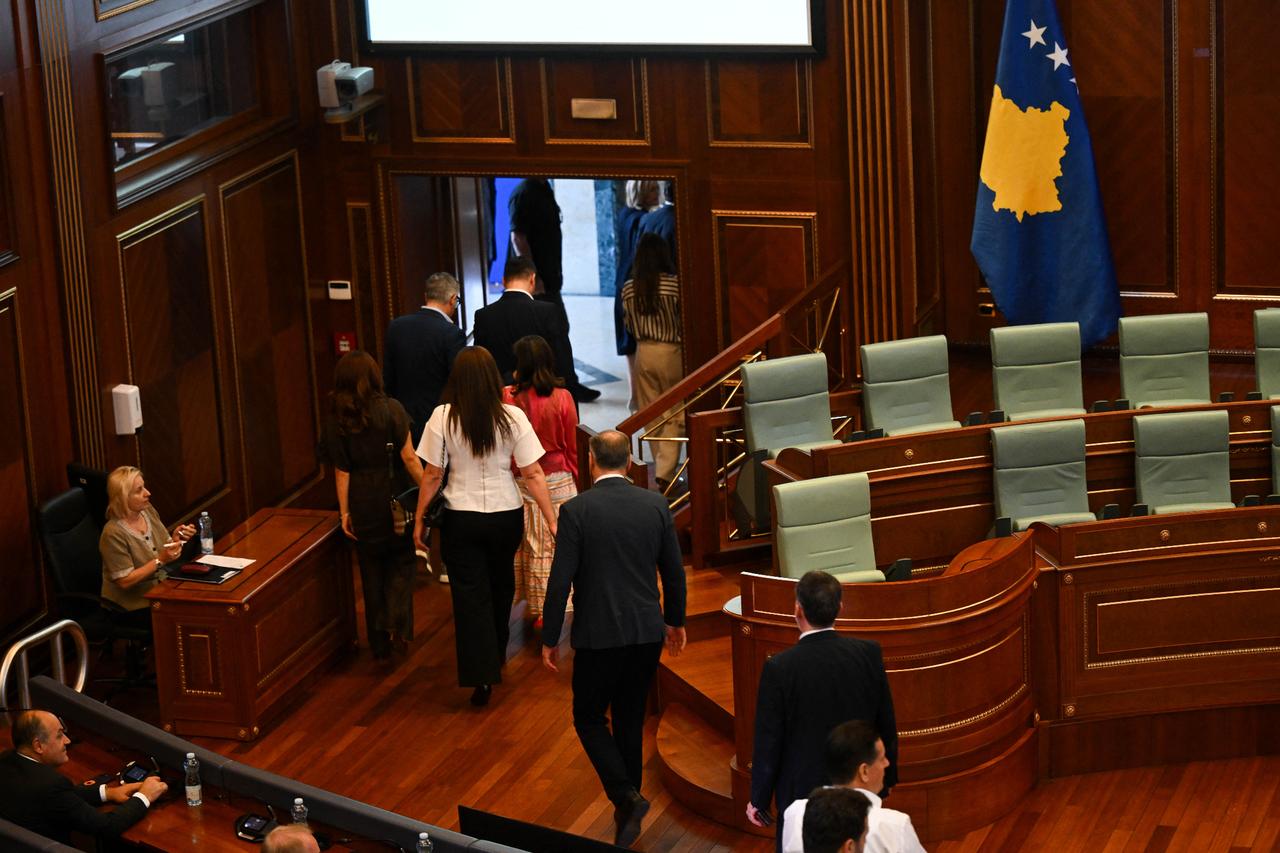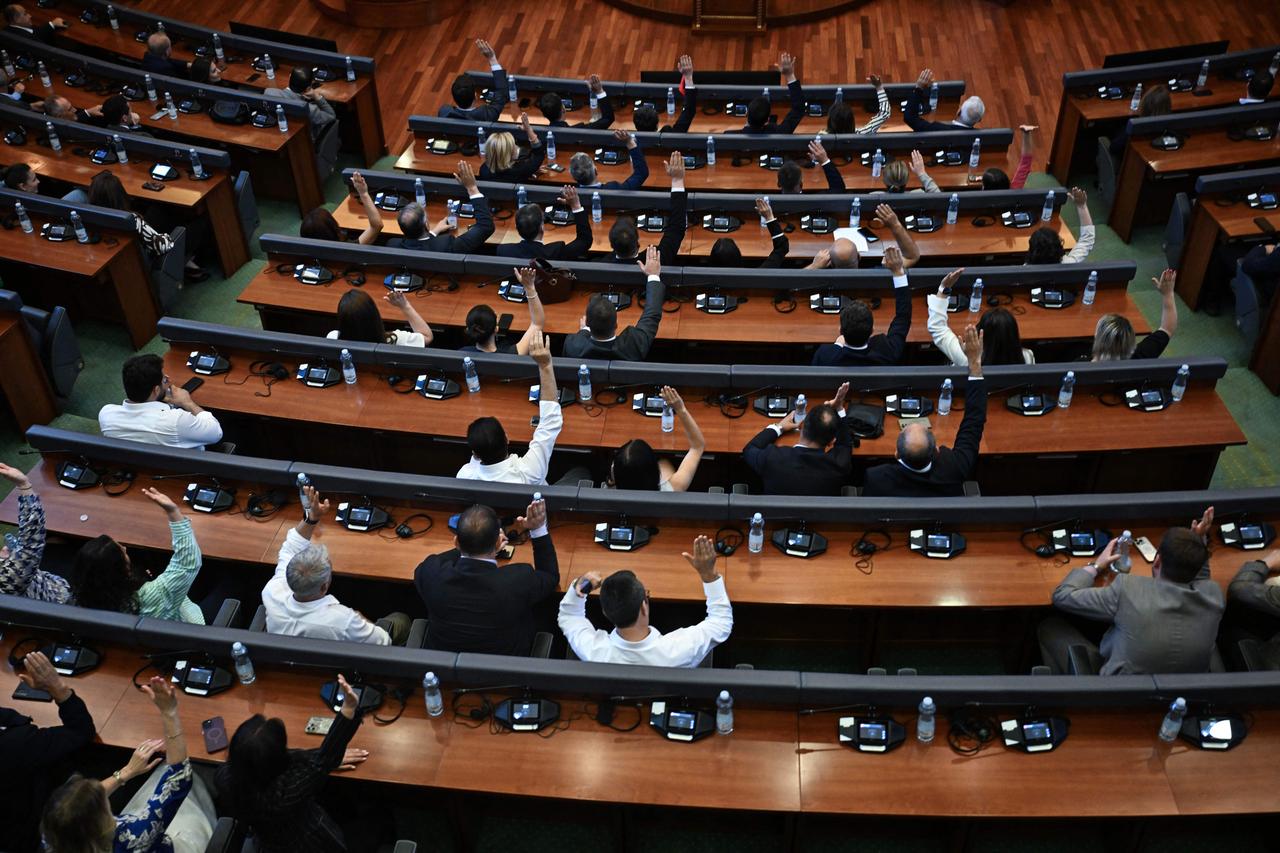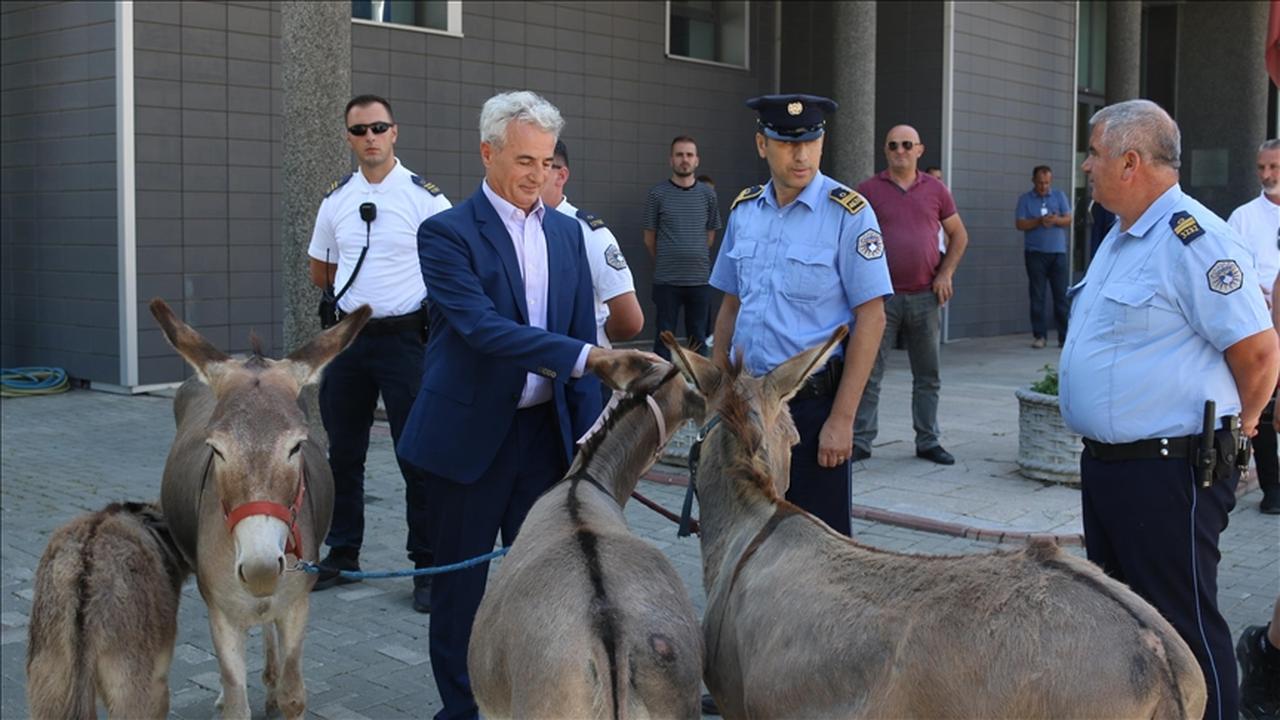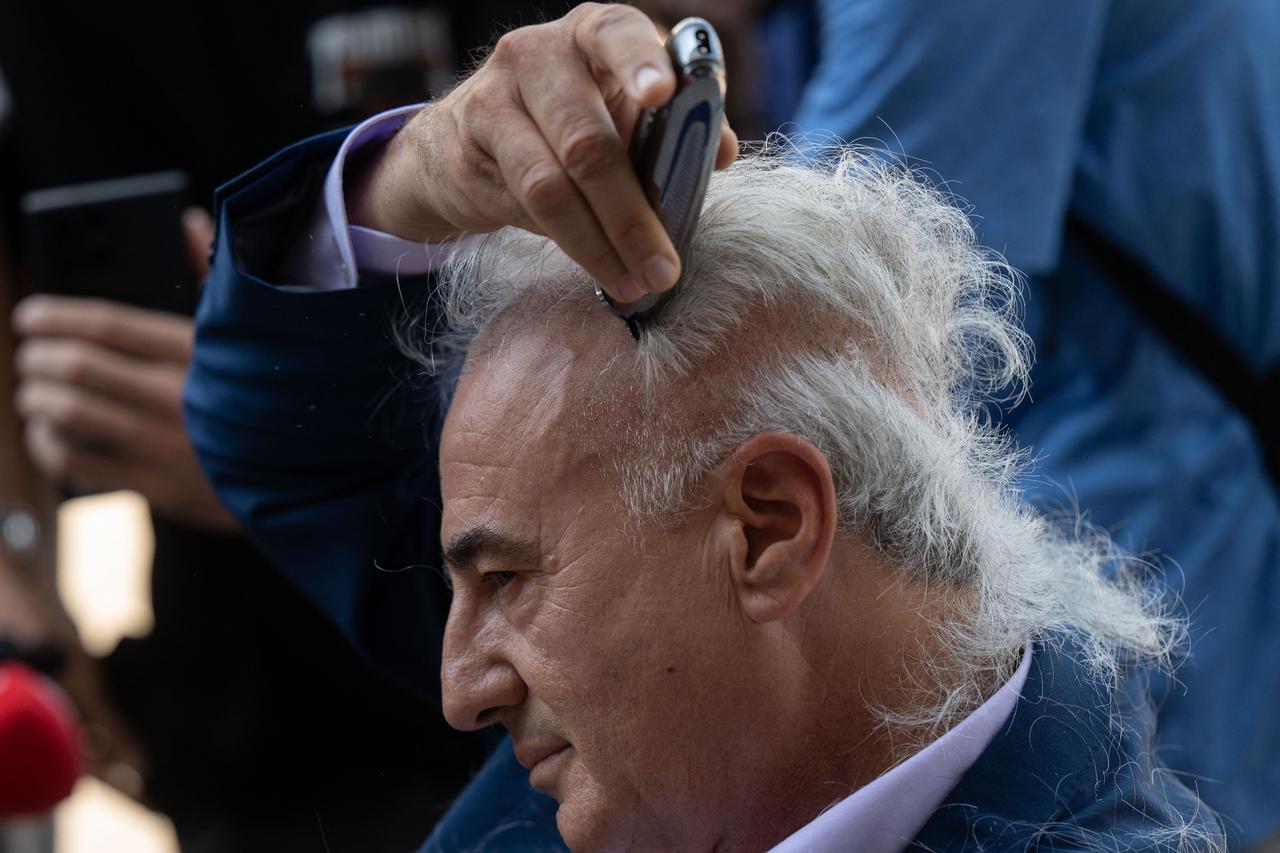
More than four months after the Feb. 9 parliamentary elections, Kosovo remains without a functioning legislature or government. Since the Assembly’s first session on April 15, lawmakers have failed at least 52 times to elect a Speaker, leaving the country in constitutional deadlock and halting governance processes.
LVV secured 48 of 120 seats, making it the largest party but far short of the 61 votes needed to elect the speaker or form a Cabinet. Its nominee, Albulena Haxhiu, has repeatedly missed the threshold—even with support from some minority deputies, she reportedly received just 52 votes in one session.

Opposition parties (PDK, LDK, AAK) have not proposed an alternative candidate, rejecting secret ballots proposed by LVV and leaving the process in an institutional deadlock.
While the Constitution mandates reconvening the Assembly every 48 hours until a speaker is elected, it imposes no explicit time limit on the process.
On June 26, the Constitutional Court ordered a resolution within 30 days, setting a hard deadline of July 26 to break the stalemate. When no agreement emerged, the court suspended further parliamentary activities until Aug. 8, pending further interpretation.
As Kosovo’s political crisis drags into its fourth month, civil society is no longer watching from the sidelines—it is marching, shouting, and even staging theatrical interventions. What began as murmurs of frustration has now erupted into a loud, visual demand for accountability, led by citizens, activists, and one particularly bold lawyer.
On July 3, lawyer and public figure Arianit Koci brought four donkeys to the gates of Kosovo’s Parliament. His message was clear: the country’s leaders have become so entrenched in their own stubbornness that they are no longer distinguishable from beasts of burden. Police blocked him from entering the courtyard, but the symbolism was already planted in public consciousness.

“The protest is peaceful,” Koci told reporters. “The donkeys represent the politicians’ refusal to move forward.” He added with biting sarcasm, “I apologize to the donkeys who had to make the journey from Istog.”

But this was no one-day stunt. Koci’s protest evolved with the crisis. By the time the 50th failed session to elect a parliamentary speaker took place on July 21, he took a razor to his own scalp, shaving his head at the entrance to the Assembly. In doing so, he embodied a gesture of civic mourning and frustration.
The EU and other Western partners emphasize that functioning institutions are essential to continued support and to advance Kosovo–Serbia normalization talks.
Though sanctions imposed in 2023 are being gradually lifted, European officials—including Foreign Policy Chief Kaja Kallas—warn that institutional stability is a precondition to unlocking €6 billion ($6.94 billion) in Growth Plan funding. Opposition leaders note the deadlock undermines Kosovo’s negotiating position.